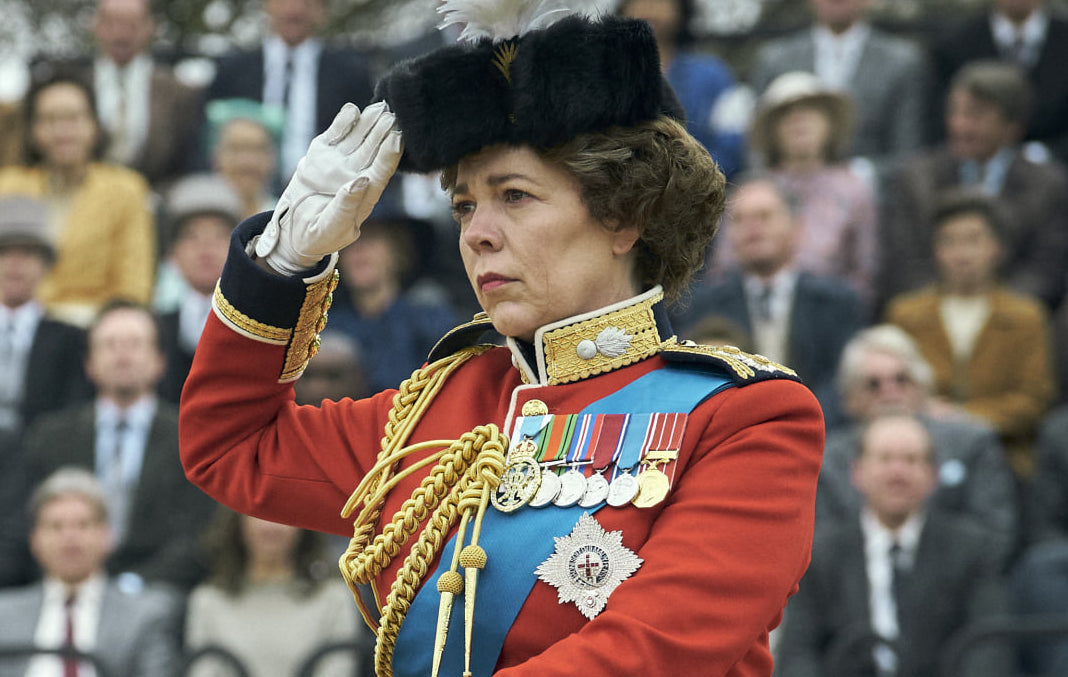
Playing fast and loose with facts, from wolf hall to the crown | thearticle
- Select a language for the TTS:
- UK English Female
- UK English Male
- US English Female
- US English Male
- Australian Female
- Australian Male
- Language selected: (auto detect) - EN
Play all audios:

Since Season 4 of _The Crown_ appeared last Sunday there have been two surprising things. First, how negative the response has been, especially on social media. Second, while some have
attacked the series for its historical inaccuracy, others have said that that’s irrelevant, it was a drama not a documentary series. The main attacks on _The Crown_’s historical inaccuracy
have been in the_ Times,_ the_ Daily Mail _and _Private Eye_. Over thirty years the royal historian Hugo Vickers has written books on _The Private World of the Duke & Duchess of
Windsor_, _Alice, Princess Andrew of Greece_ and _Elizabeth, The Queen Mother_. Writing in the_ Times_ last Monday, Vickers attacked Peter Morgan, the creator and writer of _The Crown_, for
inventing the scenes where Mountbatten wrote to Prince Charles urging Charles to settle down, on the very day he was murdered by the IRA; where the royal family behaved appallingly to Diana
accusing her of not knowing to whom she should curtsey and in what order; for implying that Prince Charles called Camilla regularly during the early years of his marriage; and for suggesting
that the Queen wanted the world to know that she thought Margaret Thatcher was “uncaring”, leading to a story in the_ Sunday Times _attacking the Prime Minister. _Private Eye _pointed out
how often Morgan changed the dates of key events in order to help him make the dramatic juxtapositions that are so central to his style. For example, “he needs to pretend the PM’s son went
missing while the Falklands were in dispute, so that, with Prince Andrew about to get his chopper out over the South Atlantic, HMQ and her PM can simultaneously be mothers with sons in
jeopardy.” To this list one could add numerous serious omissions. This ten-part drama series about the Thatcher years from 1979-90 barely mentioned the IRA, Mrs Thatcher’s close
relationship with Ronald Reagan, the coal miners’ strike in the mid-1980s, privatisation, her opposition to further European integration, the fall of the Berlin Wall in 1989 or the fact that
she won three general elections in a row, two by a landslide. She divided Britain and changed British politics for a generation. There was barely a glimpse of any of this. It is like having
Churchill without the war. This can’t be wished away by saying _The Crown _is fiction. The characters are based on real figures, including some of the greatest figures in British and
American post-war history, from Churchill and Kennedy to Margaret Thatcher and LBJ. Morgan can’t turn round and say, “Whoops! This was all just dramatic licence,” pretending that events
coincided when they didn’t or simply inventing them. This has real consequences. Hugo Vickers is almost seventy; Penny Junor, another critic of the series, is 71. But what about people who
weren’t even born when Mrs Thatcher was Prime Minister? It’s not just _The Crown _that has been hammered for playing fast and loose with historical truth. Writing recently in the _TLS_, the
historian Eamon Duffy attacked Hilary Mantel’s trilogy on Thomas Cromwell and the BBC series based on it for misrepresenting two central characters, Cromwell himself and Thomas More. Duffy
is fascinating about post-war historical novels and dramas about More, but his main focus is Mantel, who, he claims, turns More into “a religious fanatic and sadistic torturer… whose cruel
humour masks self-loathing and a steely religious bigotry.” Duffy continues: “The novels harp on More as the supposed torturer – the theme recurs seven times in _Wolf Hall _alone, and in a
flashback in _Bring Up the Bodies _he is portrayed questioning the evangelical barrister James Ranham on the rack.” By contrast, writes Duffy, Mantel’s Cromwell appears “as a kind of secular
saint, whose talents and humane attitudes foreshadow the twenty-first century. … His fictional household at Austin Friars is a paradise of religious tolerance, and a home for waifs rescued
from the streets.” But according to Duffy, it was Cromwell not More who was the torturer, responsible for the torture and execution of almost twenty-five Anabaptists and for the savage
punishment of the English Carthusians who were “hanged and disembowelled at Tyburn”. According to Duffy, Cromwell’s role in the punishment of the Anabaptists is absent from _Wolf Hall_ and
the appalling death of the Carthusians is, writes Duffy, “evoked with a chilling absence of sympathy in _Wolf Hall_…” Again, what is at stake is that these hugely popular books and the
brilliant BBC dramatisations have changed the way a generation sees both men. Robert Bolt’s saintly figure of conscience in _A Man for All Seasons_, brilliantly played by Paul Scofield on
stage and screen, has been replaced by the sadistic fanatic, played just as well by Anton Lesser in Peter Kosminsky’s series. “But the caveats of historians seldom shape popular opinion,”
concludes Duffy. “Mantel’s trilogy has reconfigured perception of Tudor England for the early twenty-first century.” In the same way, Morgan’s sixty-hour Netflix series will change the way
many of us think of the Royal Family, especially Elizabeth and Charles. Leaving aside specific issues in _The Crown_, the really damaging effect of Morgan’s series is that he provides a
compelling picture of the Queen’s family as cold, heartless and completely dysfunctional. Diana, Princess of Hearts, and doubtless Meghan to come, are the saints. Everyone around them, fools
and worse. These are one-dimensional caricatures. He has turned the Queen into some simplistic Freudian parable, the unloved daughter who becomes an unloving sister and mother. That’s
neither history nor psychology. It’s character assassination. Worse still, much of it is just untrue.
